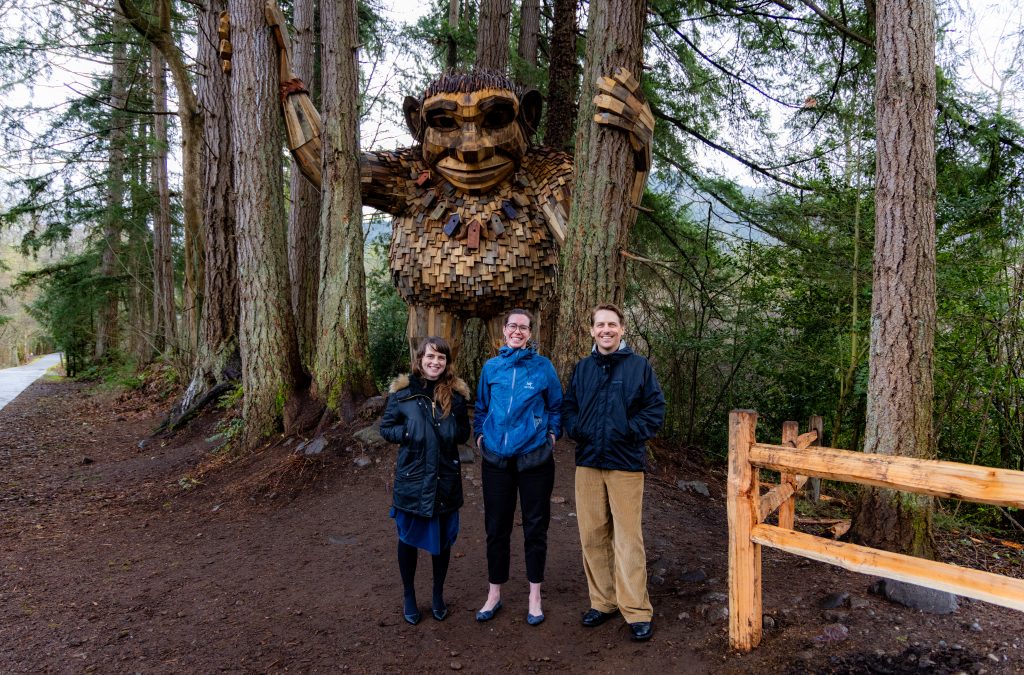Issaquah, Washington, USA
Data Helps Issaquah Close Gaps in Homeless Services
Project Type:
Community Engagement, Equity, Housing
At a Glance
Staff from the City’s Homeless Outreach program had 1,555 interactions with unhoused community members between September 2021 and January 2024. On average, it takes four to five interactions with a person before they consider accepting services.
Created and launched Data Quah, a data training program for staff. All new hires participate in Data Quah 101 to learn about the City’s data collection and tracking systems. Over 50% of staff engaged with Data Quah in its first year.
Monitored crime trends and partnered with local businesses to gather and share data. In 2023, burglaries fell by 37% and thefts by 26%.
Using data to show how investment in the arts promotes tourism and economic development. The City tracks requests for arts grants, providing insight into community-wide needs and allowing for more strategic funding decisions. (Jakob is a city art highlight.)
Staff from the City of Issaquah’s Human Services team first met John in September 2021. At the time he was camping under bridges and had been homeless for four years. It took repeated meetings to build enough trust with John to begin the process of finding him a permanent home. With the help of the City, federal rental assistance and family, John moved into an apartment in March 2022.
John is one of 37 people the City has helped move into permanent housing since it began its Homeless Outreach Program in June 2021. It has also provided unhoused community members with over 1,000 connections to services, such as temporary shelter, transportation and medical treatment.
The Homeless Outreach Program started with a goal of filling information gaps about homelessness in Issaquah. Data collected by the Human Services team showed that homelessness was more prevalent than originally thought, and that shelter, treatment and affordable housing were needed in Issaquah. These findings were incorporated into the first-ever Human Services Strategic Plan, which includes goals and action steps for effectively responding to homelessness. In 2022, the City began using an online dashboard to track data from the Homeless Outreach Program and share timely updates with the community.
“We’ve got some good data over time. But are we really able to tell that we got the outcome that we were trying to? Not just that we tried, but that we moved the needle.”
Trends emerged from the data. Because Issaquah didn’t have an emergency shelter, people had to leave town for a bed, something many did not want to do. Even when they were willing to accept shelter, 43% of the time no beds were available in the regional shelters. To fill the need, the Homeless Outreach Program began collaborating with a local hotel franchise to provide emergency shelter during extreme winter weather.
The initiative was modeled on a successful hotel-based emergency shelter program King County ran during the pandemic to reduce the spread of COVID-19. Human Services staff found that people were more likely to accept shelter in a motel room in Issaquah during extreme weather than other shelter options. The stability of the motel also allowed staff to engage more consistently with individuals, build trust faster and make quicker progress on service goals.
Seeing the positive outcomes, the City proposed expanding the collaboration with the motel beyond short-term shelter and into emergency housing. Data gathered from the homeless outreach encounters led to the City Council’s approval of a pilot program. The pilot program dedicated 12 rooms in the motel to supporting community members as they move from homelessness to permanent housing. The Human Services team, in partnership with the City’s Performance Program Analyst, will continue to collect and analyze data, look for trends, and evaluate whether their approach is alleviating homelessness in Issaquah.
1,073 connections to services, including temporary shelter, basic needs and transportation

“I was approved for a voucher to find housing. They did that for me!! The City of Issaquah rescued me but that’s only part of it. The man, Amir, who helped me went above and beyond the call of duty. He drove me places to apply, he paid deposits and holding fees. He started out as a case manager, but I consider him my friend.”